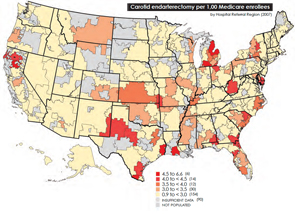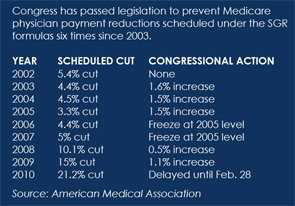Otolaryngologists may be wondering for a bit longer what their next step should be now that HHS has delayed the October 2013 implementation of the 10th revision of the International Statistical Classification of Diseases coding system (ICD-10).


Otolaryngologists may be wondering for a bit longer what their next step should be now that HHS has delayed the October 2013 implementation of the 10th revision of the International Statistical Classification of Diseases coding system (ICD-10).

In my last column (ENT Today, August 2011), I explained some of the broader issues regarding electronic medical records/electronic health records (EMR/EHR) selection, centered around the understanding that an EMR is a record that is more practice centered while an EHR is a health record intended to follow the patient through multiple providers. This article is directed toward practices with a large degree of autonomy in selecting their products; therefore, we will be discussing EMRs. If you’re part of a multidisciplinary practice or a university, you likely had little to no input regarding the EHR chosen. This is because larger numbers like primary care drive EHR selection. Don’t stop reading, however; assessment of disease-specific pathways is still applicable for the EHR you have.

In June, Congress gave physicians relief from the scheduled 21 percent Medicare pay cut, but only until the end of November. The payment patch, which briefly increases reimbursement by 2.2 percent, leaves doctors in limbo.

When describing to the curious the benefits of opting out of both Medicare and private insurance, Gerard J. Gianoli, MD, president of The Ear and Balance Institute in Baton Rouge, La., often recalls one particular example: During one 90-day global period about five years ago, after an eight-hour resection of a skull-based glomus tumor, post-operative ICU care and several days of inpatient care and the usual post-operative office visits, he received a total reimbursement of $500.

In the wake of this year’s landmark health care reform legislation, one of the most hotly debated topics comes courtesy of the Dartmouth Atlas of Health Care, as politicians, analysts, researchers and physicians grapple over how to resolve the contentious issue of geographical disparities in health care spending.
Hayes Wanamaker, MD, an otolaryngologist in Syracuse, N.Y., refers to the recovery audit process of insurance carriers as the proverbial camel’s nose under the tent.

The federal government’s proposed rule establishing incentive payments for physicians who “meaningfully use” electronic health records (EHRs) is too onerous and would discourage physicians from participating, some otolaryngologists say.
In February, the Centers for Medicare and Medicaid Services (CMS) began rolling out its national Recovery Audit Contractor (RAC) program, aimed at ferreting out improper payments and preventing fraud, waste and abuse in the Medicare system. If you bill for Medicare fee-for-service, you are fair game for a RAC audit. A three-year demonstration of the RAC program, which ended in March 2008, heavily targeted bronchoscopy, injectable drugs and IV hydration therapy. But auditors are rapidly expanding the list, and the permanent program will include adenoidectomies, tonsillectomies, thyroidectomies and other otolaryngology-related procedures.

Presdient Obama signed legislationlast month to temporarily prevent a 12.2 percent Medicare payment cut scheduled to take effect Jan. 1. The freeze lasts until Feb. 28, during which Congress is expected to come up with a permanent solution to what some consider a flawed payment system.

As of October 1, all audiologists who provide services to Medicare patients must use their own National Provider Identifier (NPI) on claims submitted to the Centers for Medicare and Medicaid Services (CMS).